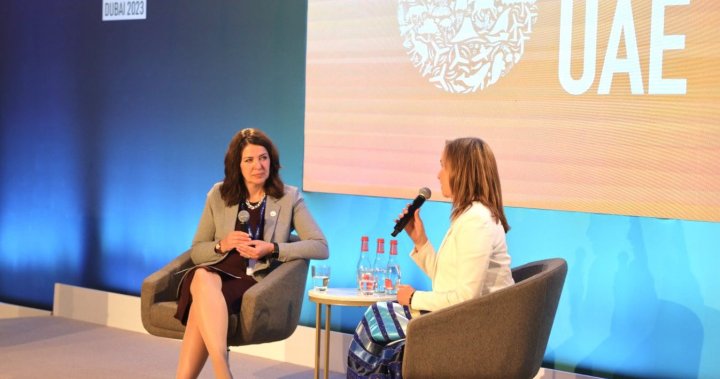Alberta’s delegation at the UN climate change conference COP28 was the largest in the province’s recent history, costing over $160,000. Premier Danielle Smith, along with other government officials and a civilian paid for by himself, attended to promote the province’s emissions reduction technologies and environmental stewardship. The purpose was also to showcase Alberta’s role in the global energy transformation, as the province cannot rely on the federal government to promote its leadership in areas such as carbon pricing and innovation.
During the two-week trip, Premier Smith attended various panels and forums at COP28 on topics like carbon markets, pricing, capture, and sequestration, and the energy transition. She also took the opportunity to meet with officials and energy companies in Dubai. The delegation later travelled to Qatar to discuss investment opportunities in various sectors. The trip aimed to position Alberta as a world-class destination for businesses and investments, with a focus on securing long-term deals and investments.
Comparing Smith’s delegation to previous trips, it was significantly larger and more costly. Rachel Notley’s attendance at COP21 in 2015, alongside members of her government, focused on promoting Alberta’s climate leadership and commitment to action on climate change. The expenses incurred by Smith’s delegation were estimated to be at least $160,000, with more details expected in mid-April. The expenses were mostly allocated towards hotels, airfare, and other related costs.
The length and size of Smith’s delegation raised questions about the return on investment, according to the Alberta Taxpayers Federation. While it is essential to promote Alberta’s energy sector, the significant expenses incurred on the trip led to concerns about the effectiveness of such a large delegation. There were speculations that the trip was a charm offensive to showcase Alberta’s energy and emissions reduction technologies to the international community.
University of Calgary political science professor Lisa Young suggested that the large delegation aimed to position Alberta as a member of the oil-producing states club, alongside countries like Kuwait and Saudi Arabia. By participating with a substantial delegation, Alberta was trying to portray itself as an affluent oil-producing jurisdiction. The joint statement issued by Smith and Schulz at the conclusion of the conference highlighted their commitment to sustainable and affordable energy derived from abated oil and natural gas.
Looking back at previous COP conferences, Alberta has been represented at the event multiple times in the past years. Various government officials, including ministers and their staff, have attended conferences in different countries to showcase Alberta’s commitment to environmental initiatives and energy production. The presence at COP events has been instrumental in demonstrating Alberta’s role in the global energy landscape and its efforts towards achieving carbon neutrality by 2050.















